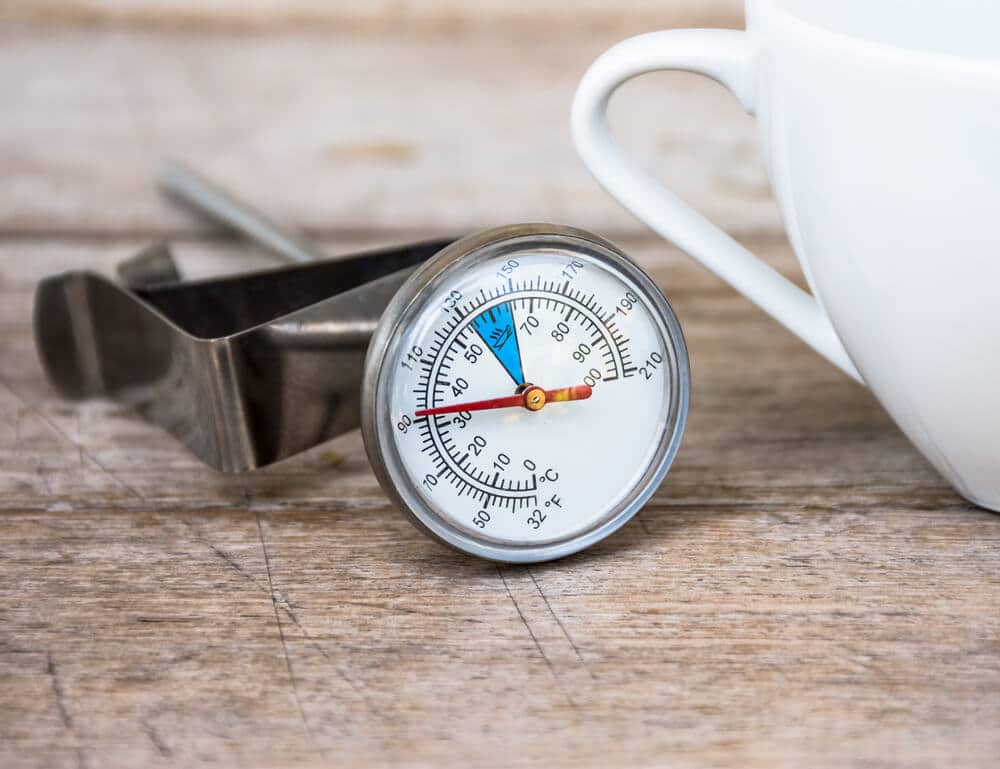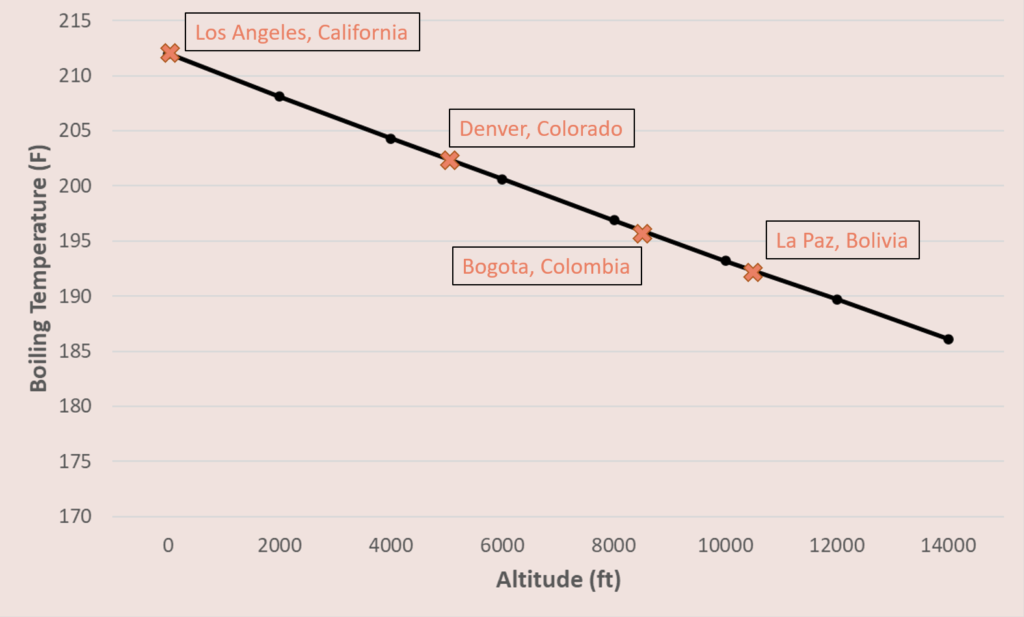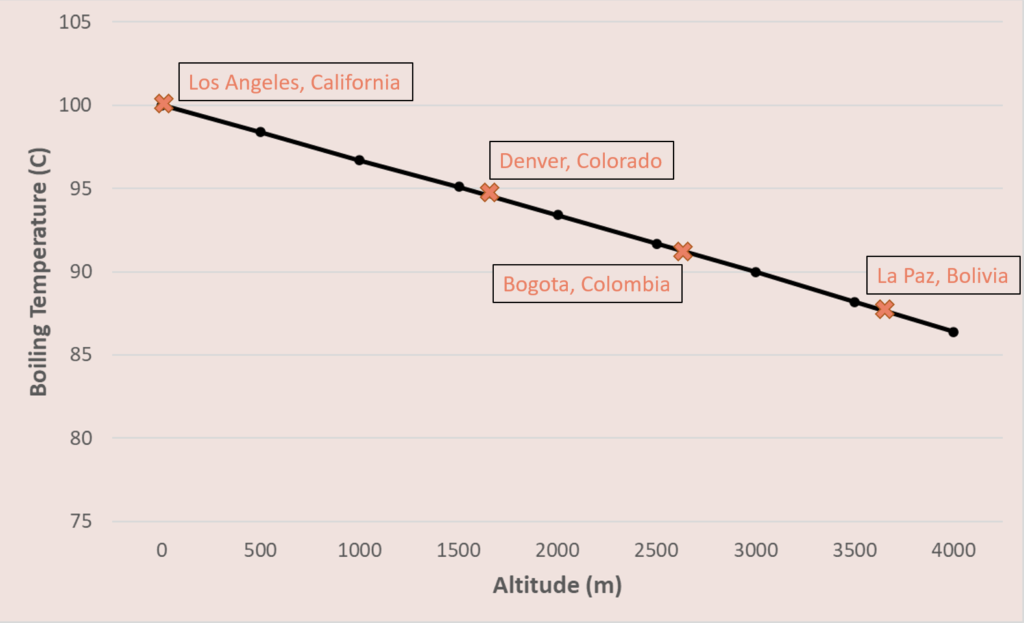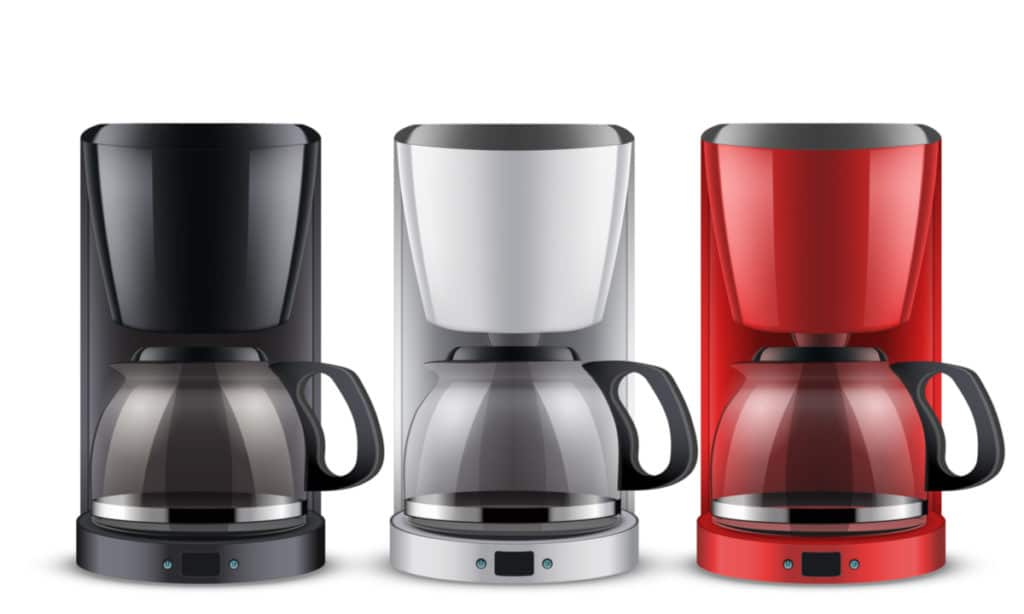A Quick Guide for the Best Temperature for Brewing Coffee

The best temperature for brewing coffee is something every coffee lover ought to know, especially if you want to call yourself a pro. But you know that already, which is why you are here!
Have you ever made coffee and wondered why it isn’t as tasty as the one you buy from the coffee shop? Many factors can influence the way your cup of coffee tastes, and people often ignore one of the most important factors: the water temperature used in the brewing process.
So what is the ideal coffee brewing temperature? And why does it differ from one place to another?
In this article, we’ll provide answers to these questions and help you perfect your coffee brewing techniques!
The Basics of Brewing Coffee
Brewing an amazing cup of coffee may not be as easy as pressing a button. It goes beyond mixing water and coffee or buying a coffee maker that does it for you. Many variables can affect the final results, which is why you need to pay closer attention to the details.
No matter what type of coffee drink you are making, all the processes involved in brewing coffee are equally important, and you’d have an inferior brew if you neglect any of those steps.
Before we continue with the temperature for brewing coffee, here’s an overview of the brewing process and the variables that can affect the final taste:
- Bean type and quality
- Beans storage
- Grind size
- Water quality
- The best temperature for brewing coffee
- Brew method
- Brew time
Extraction is very important when making coffee, which begins the moment the water is added to the ground coffee. There are so many flavors and aromas in coffee beans that we’d like to extract and have in our cup of coffee.
Time and grind size are factors that can affect the extraction process as well. The process is usually longer with finer grinds, which results in more extraction, and vice versa. One thing you must note is that over-extracted coffee will taste burnt and bitter, while under-extracted coffee will be flavorless.
I truly believe that brewing delicious coffee is an art, which involves extracting the flavors that you want from your coffee beans. And each person views art differently, so each person will enjoy their cup of coffee a certain, unique way!
Next thing to consider is the best temperature for brewing coffee, so let’s continue with that.
The Ideal Coffee Brewing Temperature
Extraction is a key process in brewing coffee, but there are two things you’ll need to consider before that:
- The compounds will not dissolve if the water is not hot enough, and your coffee will not extract well.
- Over extraction will occur if the water is too hot. You’ll only end up with undesirable flavors, and the coffee will not be pleasant to drink.
Therefore, to get an amazing cup of joe, you will need a temperature somewhere in between. For many coffee professionals, the ideal coffee temperature is between 195-205°F or 91-96°C.
Extraction becomes slower when the temperature is below 195°F and faster when it’s above 205°F.
How to Maintain the Right Temperature?
There are strategies to help you prevent the water from being too hot or not hot enough. Here are some easy ways to maintain the best temperature for brewing coffee if you use a pot or kettle:
- Get a Thermometer: The best and easiest way to monitor the water temperature and know when the water is ready, is to use a thermometer. This is important for people who live in a region where the boiling point of water is above 205°F. In that case, you will either need to prevent the heat from going above 205°F or leave the water for a few minutes after boiling and the thermometer is a handy tool for that.
- Temperature Controlled Kettle: Another option is to buy a kettle with temperature control settings where you can preselect the temperature of the water and the kettle will heat it up accordingly. These kettles usually have more than one temperature setting to choose from.
- Find your Elevation: At sea level, water has a boiling point of 212°F, but the temperature drops as you go higher. Knowing your elevation will allow you to know the exact temperature required to boil water.
- Stick to what works: If you’ve tried using a thermometer before, you’ll realize that it takes less than three minutes for the temperature to fall below 205°F after boiling. Therefore, always remember to let the water sit after boiling before you start brewing your coffee.


You’ll need to follow a different approach if you use a coffee maker. Here’s what you should do if the coffee maker heats the water for you:
- Find the temperature of water in the pot: We recommend using a thermometer to measure the temperature in the pot before you start brewing.
- Temperatures below 195°F: You’ll need to extract more if this is the case. The only issue is that you can’t regulate the temperature. Therefore, the best thing will be to use a finer coffee grind to slow down the extraction process.
- Temperature above 205°F: You do not want your coffee to taste bitter, but that is likely to happen at a higher temperature. However, you can control this by using a coarser grind to extract less.
Heating the water on your own is always the best thing to do. That way, you can easily ensure that the temperature is right. Alternatively, you can purchase a coffee maker with prebuilt controls for the best temperature for brewing coffee.
Breville Precision Brewer Coffee Maker
- Precise & Adjustable Temperature Controls
- 6 Unique Brewing Modes, including Cold Brew
- 3 Different Flow Rates to Optimize Contact Time with Ground Coffee
Related Posts:
- The Best Automatic Pour Over Coffee Maker
- Best automatic espresso machines
- Best Nespresso machines
- Best 4-cup coffee makers
- Best Breville espresso machines
- Best DeLonghi espresso machines
FAQs - Frequently Asked Questions
Does hotter water make stronger coffee?
Hotter water can make stronger coffee because the extraction yield with hotter water is higher. However, you need to be careful because hotter water can alter the final flavor you get. There’s a higher chance of ending up with a burnt or bitter taste with hotter water.
Does finer grind make stronger coffee?
No, finer grounds only increase the extraction time, because the water takes longer to go through the fine grounds, which results in over-extraction and possibly a burnt or bitter taste.
What coffee to water ratio should I be using?
Individual preferences may vary, but the best coffee to water ratio ranges between 1:15 and 1:18.
Make Amazing Coffee
We all want to drink great tasting coffee. I’d be worried if you don’t! Plus we all know how disappointing it is if you can’t get it right the first time. Fortunately, there is coffee gear available to make the perfect cup every single time.
As this article mentions, temperature is an important factor that determines the quality of the coffee you brew. You need to keep a consistent and accurate temperature if you want your coffee to taste perfect.
As long as you maintain the best temperature for brewing coffee, as well as ensure you consider all the other coffee brewing variables we discussed earlier, then you can rest assured that your coffee will taste like it was made in a coffee shop.

